Let'e me give an example:
client connect to server, and send 1MB data to server every 1 second.
server side accept a connection, and then sleep 20 second, without recv msg from client.So the tcp send buffer in the client side will be full.
Code in client side:
#include <arpa/inet.h>
#include <sys/socket.h>
#include <stdio.h>
#include <errno.h>
#include <fcntl.h>
#include <stdlib.h>
#include <string.h>
#define exit_if(r, ...) \
if (r) { \
printf(__VA_ARGS__); \
printf("%s:%d error no: %d error msg %s\n", __FILE__, __LINE__, errno, strerror(errno)); \
exit(1); \
}
void setNonBlock(int fd) {
int flags = fcntl(fd, F_GETFL, 0);
exit_if(flags < 0, "fcntl failed");
int r = fcntl(fd, F_SETFL, flags | O_NONBLOCK);
exit_if(r < 0, "fcntl failed");
}
void test_full_sock_buf_1(){
short port = 8000;
struct sockaddr_in addr;
memset(&addr, 0, sizeof addr);
addr.sin_family = AF_INET;
addr.sin_port = htons(port);
addr.sin_addr.s_addr = INADDR_ANY;
int fd = socket(AF_INET, SOCK_STREAM, 0);
exit_if(fd<0, "create socket error");
int ret = connect(fd, (struct sockaddr *) &addr, sizeof(struct sockaddr));
exit_if(ret<0, "connect to server error");
setNonBlock(fd);
printf("connect to server success");
const int LEN = 1024 * 1000;
char msg[LEN]; // 1MB data
memset(msg, 'a', LEN);
for (int i = 0; i < 1000; ++i) {
int len = send(fd, msg, LEN, 0);
printf("send: %d, erron: %d, %s \n", len, errno, strerror(errno));
sleep(1);
}
}
int main(){
test_full_sock_buf_1();
return 0;
}
Code in server side:
#include <arpa/inet.h>
#include <sys/socket.h>
#include <stdio.h>
#include <errno.h>
#include <fcntl.h>
#include <stdlib.h>
#include <string.h>
#define exit_if(r, ...) \
if (r) { \
printf(__VA_ARGS__); \
printf("%s:%d error no: %d error msg %s\n", __FILE__, __LINE__, errno, strerror(errno)); \
exit(1); \
}
void test_full_sock_buf_1(){
int listenfd = socket(AF_INET, SOCK_STREAM, 0);
exit_if(listenfd<0, "create socket error");
short port = 8000;
struct sockaddr_in addr;
memset(&addr, 0, sizeof addr);
addr.sin_family = AF_INET;
addr.sin_port = htons(port);
addr.sin_addr.s_addr = INADDR_ANY;
int r = ::bind(listenfd, (struct sockaddr *) &addr, sizeof(struct sockaddr));
exit_if(r<0, "bind socket error");
r = listen(listenfd, 100);
exit_if(r<0, "listen socket error");
struct sockaddr_in raddr;
socklen_t rsz = sizeof(raddr);
int cfd = accept(listenfd, (struct sockaddr *) &raddr, &rsz);
exit_if(cfd<0, "accept socket error");
sockaddr_in peer;
socklen_t alen = sizeof(peer);
getpeername(cfd, (sockaddr *) &peer, &alen);
printf("accept a connection from %s:%d\n", inet_ntoa(peer.sin_addr), ntohs(peer.sin_port));
printf("but now I will sleep 15 second, then exit");
sleep(15);
}
Start server side, then start client side.
server side may output:
accept a connection from 127.0.0.1:35764
but now I will sleep 15 second, then exit
Process finished with exit code 0

client side may output:
connect to server successsend: 1024000, erron: 0, Success
send: 1024000, erron: 0, Success
send: 1024000, erron: 0, Success
send: 552190, erron: 0, Success
send: -1, erron: 11, Resource temporarily unavailable
send: -1, erron: 11, Resource temporarily unavailable
send: -1, erron: 11, Resource temporarily unavailable
send: -1, erron: 11, Resource temporarily unavailable
send: -1, erron: 11, Resource temporarily unavailable
send: -1, erron: 11, Resource temporarily unavailable
send: -1, erron: 11, Resource temporarily unavailable
send: -1, erron: 11, Resource temporarily unavailable
send: -1, erron: 11, Resource temporarily unavailable
send: -1, erron: 11, Resource temporarily unavailable
send: -1, erron: 11, Resource temporarily unavailable
send: -1, erron: 104, Connection reset by peer
send: -1, erron: 32, Broken pipe
send: -1, erron: 32, Broken pipe
send: -1, erron: 32, Broken pipe
send: -1, erron: 32, Broken pipe
send: -1, erron: 32, Broken pipe

You can see, as the server side doesn't recv the data from client, so when the client side tcp buffer get full, but you still send data, so you may get Resource temporarily unavailable error.

